
Professor Ismael Díez-Pérez
Professor of Nanochemistry
- Co-Director BiPAS CDT
- Deputy Head of Department (Research)
- Advanced Topics in Chemistry Module Lead
Research interests
- Chemistry
Contact details
Biography
Professor Ismael Díez Pérez is the Head of the Department of Chemistry, King's College London, and is a Professor in Nanochemistry and Physical Chemistry.
He obtained his degree in Chemistry from the University of Barcelona in 2001 deepening into the fundamental aspects Passivation and Corrosion processes at metal/electrolyte interfaces. An essential part of his PhD training was conducted at the Lawrence Berkeley National Lab and at the University Pierre Marie-Curie in France. His PhD research resulted in the development of a novel electrochemical tunneling spectroscopy approach to interrogate meta/electrolyte interfaces at the nanoscale; work that was awarded with the international ISE-prize Hans-Jürgen-Engell in 2008.
After graduating in 2006, he won a Marie-Curie fellowship to develop his postdoctoral project in Arizona State University. There, he developed new single-molecule junction methods and demonstrated several basic electrical behaviors in a single-molecule wire, namely, diode effect, transistor behavior and electromechanical effects. In 2011, he received an European Reintegration grand to work as a senior researcher at the Institute for Bioengineering of Catalonia, where he created a new research line in BioMolecular Electronics. In 2012, he got his assistant professor position at the Physical Chemistry department, University of Barcelona, and tenured associate Prof in 2015.
In 2017, he obtained a prestigious ERC Consolidator award focused on studying the effects of force fields in Biology. The same year, he moved to the department of Chemistry at King's College London as Professor, where he currently supervises a wide variety of projects involving the study of fundamental charge transport in (bio)molecules, spanning from simple synthetic backbones to complex biomolecular moieties with the aim of understanding the underlying mechanisms of bioelectricity.
Research interests
- BioMolecular Electronics
Teaching
- Advanced Analytical Chemistry
- Advanced Topics in Chemistry 2
- UG Research Methods Literature Review
- MSci Research Project & Dissertation
- MRes Research Project in Interdisciplinary Chemistry
Research profile
For more information on Professor Díez Pérez's research please see his Research Portal page.
The Díez Pérez Group
Research Associates
Postgraduate Researchers
- Jhanelle White
- Nashili Kibria
- Varun Chittari Pisharam
- Wenzhu Kuang
The Díez Pérez Group focuses on understanding the underpinning mechanisms of bioelectricity and potential applications. To these aims, the Group have developed unique single-protein capabilities to precisely control the formation of electrical contacts with individual (bio)molecules between two metal electrodes under electrochemical control, which allow them to characterise their charge transport signatures at a very high level of resolution. In combination with a variety of other experimental approaches, the Group is tackling several cutting-edge scientific questions that constitute the main core of their current projects:
- In combination with Molecular Biology, we study bioengineered single-protein wires to dissect electron pathways in model redox proteins.
- In combination with magnetometry, we study spin-polarised charge transport in chiral biological moieties to unravel the role of spin in quantum biology.
- In combination with bioelectrochemistry, we study electrical transduction of enzymatic catalysis in a single-protein wire.
- We explore long-range transport mechanisms developed in protein complexes of electrical bacteria.
Visit the Díez Pérez Group website to find out more.
Research

Biological Physics Across Scales (BiPAS)
The Biological Physics Across Scales Centre for Doctoral Training (BiPAS CDT) is a multi-disciplinary doctoral training programme in biological physics based at King's College London.
News
Great minds gather for King's Quantum Annual Symposium
Top scientific policy leads and industry voices joined a choir of King’s quantum researchers to discuss how to turbocharge the technology.
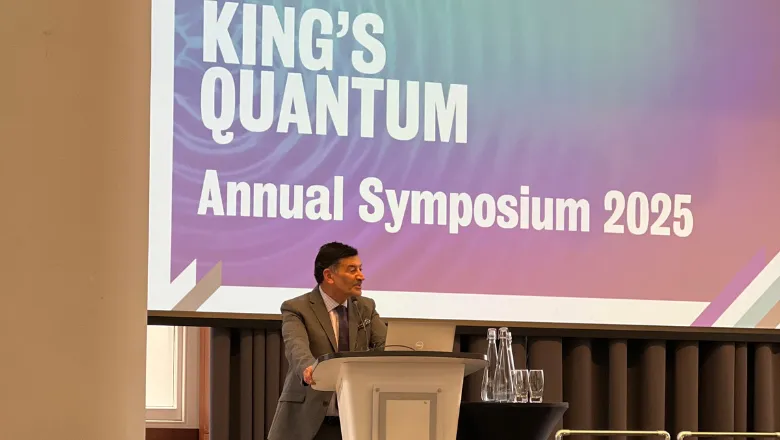
Greener, cheaper method to accelerate chemical reactions developed by King's scientists and partners
The team proved that electrical fields can catalyse chemical reactions for large-scale chemical production.
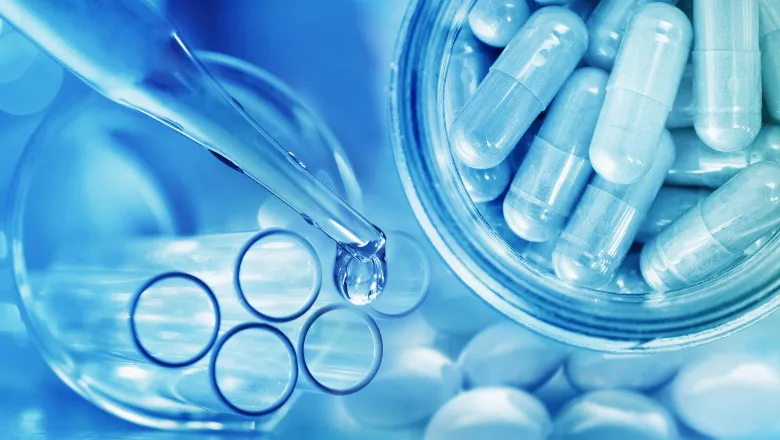
Events
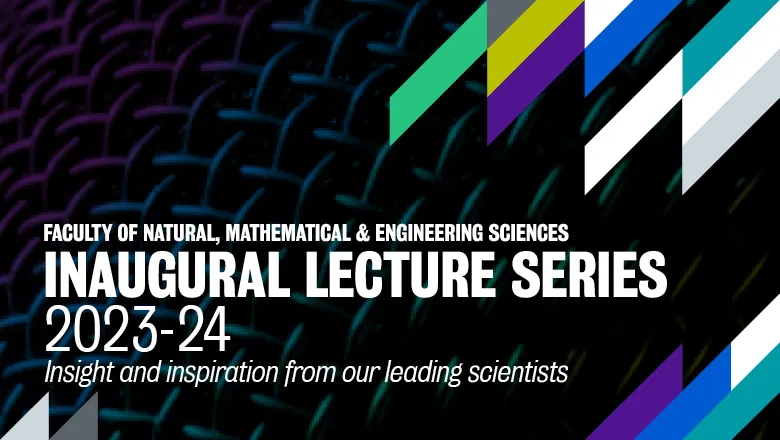
Chemistry Inaugural Lecture: Professors Ismael Díez-Pérez and Martin Ulmschneider
Join us to celebrate a special milestone for our new professors and hear about their inspiring career journeys.
Please note: this event has passed.
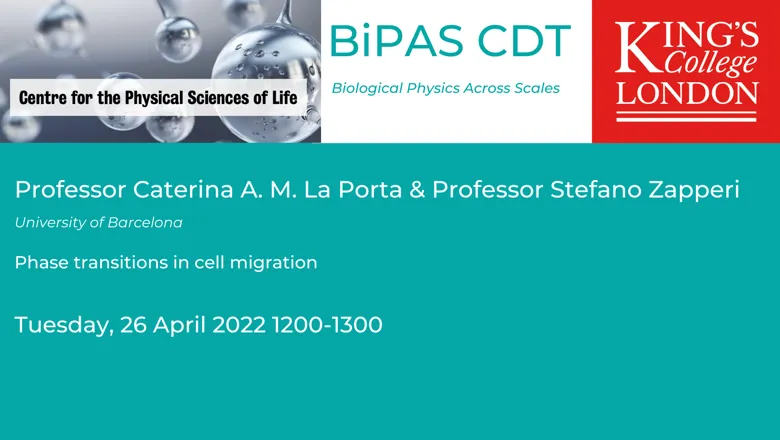
Professor Caterina A. M. La Porta and Professor Stefano Zapperi - Phase transitions in cell migration
Seminar in Biological Physics on phase transitions in cell migration
Please note: this event has passed.
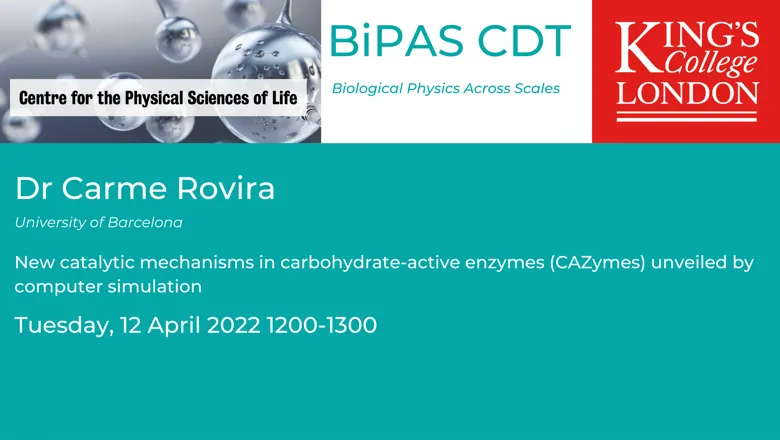
Dr Carme Rovira - New catalytic mechanisms in carbohydrate-active enzymes (CAZymes) unveiled by computer simulation
Seminar in Biological Physics
Please note: this event has passed.
Research

Biological Physics Across Scales (BiPAS)
The Biological Physics Across Scales Centre for Doctoral Training (BiPAS CDT) is a multi-disciplinary doctoral training programme in biological physics based at King's College London.
News
Great minds gather for King's Quantum Annual Symposium
Top scientific policy leads and industry voices joined a choir of King’s quantum researchers to discuss how to turbocharge the technology.

Greener, cheaper method to accelerate chemical reactions developed by King's scientists and partners
The team proved that electrical fields can catalyse chemical reactions for large-scale chemical production.

Events

Chemistry Inaugural Lecture: Professors Ismael Díez-Pérez and Martin Ulmschneider
Join us to celebrate a special milestone for our new professors and hear about their inspiring career journeys.
Please note: this event has passed.

Professor Caterina A. M. La Porta and Professor Stefano Zapperi - Phase transitions in cell migration
Seminar in Biological Physics on phase transitions in cell migration
Please note: this event has passed.

Dr Carme Rovira - New catalytic mechanisms in carbohydrate-active enzymes (CAZymes) unveiled by computer simulation
Seminar in Biological Physics
Please note: this event has passed.
